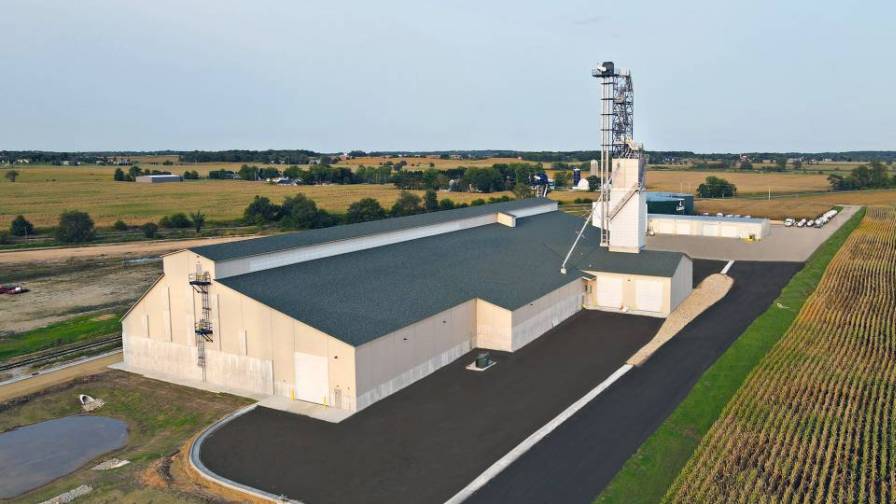ARA: 2018 Farm Bill Represents ‘Missed Opportunity’
Agricultural Retailers Association (ARA) President and CEO Daren Coppock released the following statement on the conference report on the Agriculture Improvement Act of 2018 (Farm Bill):
“ARA is happy to see a Farm Bill move forward, however this bill represents a missed opportunity to correct some straightforward regulatory problems that would have had no budgetary impact.
“We are disappointed to see language to fix the National Pollutant Discharge Elimination System (NPDES) regulatory overlap once again dropped from the conference report. The association strongly supported language to fix the long-standing duplicative permitting requirement for pesticide applications that are already regulated under Federal Insecticide, Fungicide, and Rodenticide Act (FIFRA) and state laws. This unnecessary requirement, the result of a court case, adds cost, potential liability and compliance burdens without creating any benefit for the environment, worker safety or farmers. The fix for NPDES was publicly supported by all four of the primary negotiators of the report, was in the House bill, was on the table in the last Farm Bill, has previously passed the Senate Agriculture Committee, and yet was still not included in the report.
“A proposed statutory definition of what constitutes a ‘retailer’ was included in the House bill but dropped in conference. This provision was necessary to prevent arbitrary re-definitions of ‘retailer’ by regulatory agencies, which was the mechanism the Occupational Safety and Health Administration (OSHA) attempted to use to impose Process Safety Management (PSM) on anhydrous ammonia fertilizer retailers. OSHA’s stated justification for trying to impose PSM was the 2013 tragedy in West, Texas, where anhydrous ammonia was present but played no role whatsoever in the explosion even by OSHA’s own admission. OSHA has ample authority under existing regulations to inspect facilities that store ammonia or ammonium nitrate without imposing PSM; assertions to the contrary are false. Rather than accept our offer to work together on targeted regulatory fixes for the actual causes of the incident, OSHA declined and instead opted to pursue PSM on a product that was not at fault at West.
“Clarifications to streamline Endangered Species Act (ESA) consultations on pesticide registrations were watered down in the final conference report. Section 7 of the ESA requires consultations with the National Marine Fisheries Service or the U.S. Fish and Wildlife service on actions that might impact endangered species, but consultations on every single product or active ingredient are cumbersome when classes of ingredients could be analyzed instead. These consultations are also litigation magnets for anti-pesticide activist groups. The House bill included some common-sense reforms to this process that would have streamlined its operation, improved its predictability and timeliness, all without sacrificing environmental protections. This language is diluted in the report to the point it is unlikely to be helpful.
“A provision to repeal the onerous 2015 Waters of the United States (WOTUS) rule from the House bill is missing in the conference report. The 2015 WOTUS rule would have placed most of the land area in the country under federal Clean Water Act jurisdiction – a textbook case of regulatory overreach and outside the scope of the Clean Water Act. Thankfully the U.S. Environmental Protection Agency is working on a replacement rule to be released today which will hopefully result in a rational and effective WOTUS rule.”
“The conference report also fails to include the reauthorization of the Pesticide Registration and Improvement Act (PRIA). Language from the House bill on FIFRA including a definition of ‘state lead agency’ which would have strengthened pesticide preemption across the country. This legislation omits key provisions for agricultural retailers, which is a disappointment.
“We know that farmers and their bankers need certainty; many of our members offer trade credit to farm customers, and they need that certainty too. We appreciate language in the Conservation Title related to Third Party Service providers, as well as provisions to support rural broadband to empower rural communities and enable precision agriculture functionality.
“This legislation represented a significant opportunity to correct some serious regulatory issues, and those solutions did not make the final bill despite significant bipartisan support. ARA will not oppose this bill but we had hoped for much more.”
The full text of the conference report can be viewed here.






